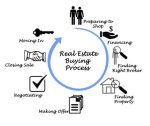How to Arrange Furniture- 10 Basic Rules


Serving South Florida


Filed under: Blog, Boca Raton real estate, Down Sizing, Exclusive Buyer Agent, First Time Homebuyers, Florida Real Estate, Home Buyer Advice, Home Buyers, Home decorating, Homebuyer Advice, Interior Design, Real Estate, Real estate trends, Relocation, South Florida Real Estate by Kim Bregman
Comments Off on How to Arrange Furniture- 10 Basic Rules

Pets are an important part of our family, and one of the bright spots in the stay-at-home mandates due to COVID-19 is that we get to spend more time with them. The pets of the world are probably delighted with that aspect of the current crisis.
Understandably, many owners have questions about their pet’s susceptibility to COVID-19 and how it might affect their personal health. Just as medical experts are learning more each day about how the new coronavirus, COVID-19, impacts the health of humans, they’re also studying its effects on animals. And what they’ve discovered is that although the virus primarily spreads from person to person, it can spread from people to pets in some situations.
A small number of pets worldwide, including cats and dogs, have tested positive for COVID-19, “mostly after close contact with people with COVID-19,” the Centers for Disease Control and Prevention (CDC) says.
Cats appear to be the most susceptible to SARS-CoV-2 and can even develop symptoms of the disease, preliminary studies show. They also seem to be able to spread the virus to other cats. (Laboratory studies have found that ferrets and golden or Syrian hamsters can spread the infection to other animals of the same species as well.)
How to protect your pets
Keeping your four-legged family members safe during the coronavirus pandemic looks a lot like how you might go about protecting the humans in your family. Physical Distancing is a key preventative measure. Public health experts recommend keeping your pet away from other people and animals outside the household.
Avoid dog parks and public spaces where dogs gather to play, and when on walks, keep your dog at least 6 feet from other people and animals. Cats should be kept indoors when possible to limit their interaction with other people and pets, the CDC advises. While you spend more time at home, try to dedicate more time to playing with your dog or cat. It’s a great time to bond, teach them new tricks or focus on behavior training.
If you or someone in your family is sick with COVID-19, avoid contact with your pets — this includes petting, snuggling and smooching. If possible, have another member of your household care for your pet while you are sick, the CDC says. Also: Be sure to wear a cloth face covering if and when you are around your pet, and don’t forget to wash your hands before and after touching any animal. This helps to keep you and your pet healthy.
Here are some key actions you can take to prepare and help ensure the safety and care of your pets in case you get sick:
If you are concerned that your pet has been exposed to the coronavirus, contact your veterinarian. Just like with people, it’s better to call first to limit the risk of exposing others to the virus.
Filed under: Blog, coronavirus, Exclusive Buyer Agency, Florida Real Estate, Home Buyer Advice, Home Buyers, home safety, Homebuyer Advice by Kim Bregman
Comments Off on Household Pets and COVID-19

Filed under: Blog, Boca Raton real estate, coronavirus, Exclusive Buyer Agency, Exclusive Buyer Agent, First Time Homebuyers, Florida Real Estate, Foreign Home Buyers, Home Buyer Advice, Home Buyers, Home Financing, home Inspections, home safety, Homebuyer Advice, House Closings, International Home Buyers, International investors, Real Estate, Real Estate Closings, Real Estate Investment, real estate news, Relocation, South Florida Real Estate by Kim Bregman
Comments Off on COVID-19 Real Estate Home Buying Process

The novel coronavirus (COVID-19) has put a stop to the normal routines of everyday life both in the U.S. and abroad. And while social distancing is the course of action to take until told otherwise, moves aren’t always something that can wait. Real estate is considered an essential service in all states and there are many services providers to assist you in facilitating a move to a new home.
By taking extra safety precautions and minimizing social contact, you can still move safely. If you are about to move, you can still pull it off with a little extra planning and a few precautionary steps.
Here are some tips for making your move as safe, seamless and stress-free as possible.
There have not been any notable shutdowns of service among major moving companies. That being said, decisions about closures may be left to individual franchise owners. If you have already scheduled your move and haven’t heard anything, assume that your moving company is still providing services unless told otherwise, but still call just to confirm.
If you’re worried about moving during a pandemic for a move that is still upcoming and for which you haven’t scheduled movers, it’s hard to say what will and will not be available in the months to come. For now, continue to do research on companies and ask directly what steps are being taken when you reach out. What has changed at this point is largely going to be related to the customer experience itself, including frequent hand washing among movers and no physical contact between movers and clients.
If you need to select a moving company, ask for a virtual quote and see if the company offers fully contactless service. Forgo handshakes, for obvious reasons. A smile and a generous tip (sent through Venmo, PayPal or another contactless digital platform) are a welcome substitute. These companies have virtual estimate procedures available for competitive quotes
Moving companies are taking the coronavirus pandemic very seriously. To that end, companies across the country have put into place protocols designed to protect their employees and their customers. These include:
All of these practices help ensure that moving services can remain available in a safe way.
| Company | Status | Additional info |
| AmeriFreight | Open | Learn more |
| Montway Auto Transport | Open | Learn more |
| Sherpa Auto Transport | Open | Learn more |
| Ship a Car Direct | Open | Learn more |
| uShip | Open | Learn more |
| Company | Status | Additional info |
| Allied Van Lines | Open | Learn more |
| American Van Lines | Open | Learn more |
| Expedia Van Lines | Open | Learn more |
| First National Van Lines | Open | Learn more |
| International Van Lines | Open | Learn more |
| Interstate Moving & Relocation Group | Open | Learn more |
| North American Van Lines | Open | Learn more |
| PODS | Open | Learn more |
| Silver Star Moving Group | Open | Learn more |
| United Van Lines | Open | Learn more |
Same as moving companies, major storage companies continue to run operations. What you might be able to expect however is limited hours of accessibility and/or a reduction in the number of customers who are able to access their units at any one time. Storage companies should also be following proper hygiene practices, including sanitization of access pads and the requisite six feet or more of space between customer and customer and customer and employee.
| Company | Status | Additional info |
| CubeSmart | Open | Learn more |
| Extra Space Storage | Open | Learn more |
| Public Storage | Open | Learn more |
The process of a DIY move looks pretty much the same now as it did before COVID-19, minus the ability to have a couple friends come over and lend a hand in exchange for pizza. Some additional things that you will want to do however include keeping hand sanitizer, soap, and paper towels accessible at all times, we well as making a detailed plan for both your departure and arrival.
Major rental truck companies continue to be in service, as they are considered essential for transportation and personal mobility needs. Again, what may be different is the experience, since companies like Enterprise and U-Haul have put into place their own protocols for physical distancing. This means that your pick-up and drop-off location may not be at the branch office, and that you’ll have to make your reservation online or over the phone instead of in person.
If you rent, talk to your current landlord about how you can safely drop off keys and collect your security deposit, and talk to your new landlord about the process for a safe move in. Putting in a blueprint of steps ahead of time will help you maintain social distancing during your DIY move and answer any questions you might have about the process.
| Company | Status | Additional info |
| Budget | Open | Learn more |
| Enterprise | Open | Learn more |
| Penske | Open | Learn more |
| The Home Depot | Open | Learn more |
| U-Haul | Open | Learn more |
One silver lining is that social distancing means that you might have more time to devote to organizing your home prior to your move and getting rid of the things you no longer want or need. If you plan on donating items like clothing, linens, furniture, shelf stable non-perishables, etc., call the place that you would like to donate to ahead of time and see what their policies are. While many people are in need during this time, it’s likely not going be quite as easy as just driving to your nearest donation center and dropping stuff of (but that doesn’t mean you shouldn’t do it).
| Company | Status | Additional info |
| 1-800-GOT-JUNK | Open | Learn more |
| College Hunks Hauling Junk | Open | Learn more |
| LoadUp | Open | Learn more |
| Waste Management Dumpster Rentals | Open | Learn more |
This is important to confirm your reservation and discuss best practices for moving day. Moving companies are putting in lots of safeguards to help protect their clients, and it helps to be on the same page as them in terms of what is expected.
You are going to want to get it right with just one trip to the store, so make sure you know exactly what you’re going to need for your move. Don’t use free or recycled moving boxes. The coronavirus can live on cardboard for as long as 24 hours, so now is not the time to be picking up free moving supplies from places that are recycling them. Boxes that you already have in your home are fine, but if you need any extras then you’ll need to go to the store and buy them new (even better if you can then purchase them through self-checkout). Better yet, order all your moving supplies online and have them shipped to your residence. Clean as you pack. Use this opportunity to sanitize your belongings, wiping items down with disinfectant. If you don’t have any, you can make one with a solution of one tablespoon bleach to one gallon of water.
Coronavirus can last a long time on surfaces, including up to 24 hours on cardboard boxes. Your movers will be wearing gloves, but for everyone’s safety you should still have your boxes packed and sitting untouched at least a day before your movers arrive.
To aid your movers in following necessary hygiene practices, be sure to leave out products that they can use while they transport your items to and from the moving truck. That includes soap and paper towels by the sink, and hand sanitizer by the door that they’ll be entering and exiting through. If you’re concerned about having enough supplies, let your moving company know so they can be sure to bring them along for use during the move.
In advance of your move, reach out to your neighbors — especially if you live in an apartment building — and share the date and time you plan to move. This gives everyone in your direct vicinity an opportunity to avoid unnecessary contact and let you know if your timing is a problem.
Be sure to deep clean and sanitize your new home before you move into it. Here are a few resources and tips to help:
CDC’s recommendations on how to clean and sanitize your home
If you have an extra minute, here are some additional things to consider
Additional resources:
Moving is stressful under the best of circumstances; this is a scary time and certainly takes moving stress to the next level. With some planning and organization, you can relocate and stay safe even in an environment with a pandemic.
Filed under: Blog, Boca Raton real estate, coronavirus, Down Sizing, Exclusive Buyer Agency, Exclusive Buyer Agent, First Time Homebuyers, Home Buyer Advice, Home Buyers, home safety, Homebuyer Advice, House Closings, International Home Buyers, Real Estate, Real Estate Closings, real estate news, South Florida Real Estate by Kim Bregman
Comments Off on Guidance for Moving During COVID-19

 We are all being more cautious these days, but it’s always been important to take good care of the bags you use to carry your food.
We are all being more cautious these days, but it’s always been important to take good care of the bags you use to carry your food.
Filed under: Blog, coronavirus, Exclusive Buyer Agency, Exclusive Buyer Agent, Home Buyer Advice, Home Buyers, Home Maintenance, home safety, Homebuyer Advice, real estate news by Kim Bregman
Comments Off on How To Clean Reusable Shopping Bags

PHOENIX, April 09, 2020 (GLOBE NEWSWIRE) — The National Association of Exclusive Buyer Agents (NAEBA) reached their 25th anniversary. This milestone is a major confirmation of the importance of their mission and the value their members bring to the market. In a world where it is sometimes hard to tell who is on what side, the National Association of Exclusive Buyer Agents is clear that they exist to provide exclusive fiduciary duties to home buyers. NAEBA members avoid the conflict of interests that arise when the same firm attempts to represent both buyers and sellers.
“It is incredibly validating to have reached this major milestone of 25 years. Our members are the vanguards for the standards and ethics of fiduciary duty to buyer-clients,” says Rich Harty, current volunteer President of NAEBA. “As a membership association, we support each other so that we can better serve our buyer-clients.” NAEBA’s members are a part of a community of like-minded people who understand the value of professional development, camaraderie, networking, and the strength that comes from association.
This anniversary comes with many recent initiatives and accomplishments, including:
• The launch of the Certified Exclusive Buyer Agent online program
• The incredible growth of the NAEBA leads referral system helping connect buyers with EBAs
• Ongoing development of benefits and resource sharing for NAEBA members only
“NAEBA has offered me great tools and educational experiences to enhance my career as an Exclusive Buyer Agent, business owner, and broker. I credit my attendance at NAEBA meetings and getting involved as a volunteer with helping me establish my position as a trusted expert in my market,” says Andi DeFelice, former volunteer President of NAEBA. “Membership in NAEBA is a powerful asset for my business.”
To learn more about National Association of Exclusive Buyer Agents, visit https://naeba.org/about-naeba/ The National Association of Exclusive Buyer Agents is an independent alliance of real estate professionals who provide client-level services to home buyers only and whose real estate companies do not accept seller-property listings. The members of this Association adhere to a strict code of professional ethics and professional standards which guide them in serving their buyer-clients.
Filed under: Blog, Boca Raton real estate, Exclusive Buyer Agency, Exclusive Buyer Agent, First Time Homebuyers, Florida Real Estate, Home Buyer Advice, Home Buyers, Homebuyer Advice, International Home Buyers, Real Estate, real estate news, South Florida Real Estate by Kim Bregman
Comments Off on NAEBA celebrates 25 years of exclusively serving the interests of home buyers.

If you live in Broward County, you can call this hotline to have your questions answered: 954-357-9500.
If you live in Palm Beach County, you can call this information line with your questions: 561-712-6400.
The Sun Sentinel posted drive-through testing sites in South Florida here.
Please be aware of financial scams. You can learn more and report them here.
Tele-Health
Medicare: Medicare has temporarily expanded its coverage of telehealth services to respond to the current Public Health Emergency. Learn more here.
Florida Blue: Florida Blue’s network of primary care doctors and specialists will be able to treat patients virtually at their normal office visit rates. Visit the Florida Blue website, the Florida Blue app, the Teladoc app, or by calling Teladoc directly at 800-835-2362.
Baptist Health: Baptist Health is offering telehealth services through its Care on Demand platform. If you or someone you know has cold or flu-like symptoms, visit here using code CARE19.
Cleveland Clinic: Cleveland Clinic Florida is encouraging the use of its Express Care Online Virtual Care services as much as possible during the outbreak. Click here for more information.
Cigna: Cigna is offering COVID-19 specific resources for enrollees. Click here for more.
Humana: Humana has agreed to waive telemedicine costs for all urgent care needs for the next 90 days. This will apply to Humana’s Medicare Advantage, Medicaid, and commercial employer-sponsored plans and is limited to in-network providers delivering synchronous virtual care. More information here.
COVID-19 Public Website and Call Center
Please visit the Florida Department of Health’s dedicated COVID-19 webpage for information and guidance regarding COVID-19 in Florida.
For any other questions related to COVID-19 in Florida, please contact the DOH’s dedicated COVID-19 Call Center by calling 1-(866) 779-6121. The Call Center is available 24 hours a day. Inquiries may also be emailed to COVID-19@flhealth.gov.
County Health Departments
If you’re concerned that you may have contracted the coronavirus, please contact your healthcare professional or county health department:
Broward County: 954-467-4700
Palm Beach County: 561-840-4500
Miami-Dade County: 305-324-2400
Additional Resources
Bank Regulators have also instructed banks and servicers to be proactive in extending help to homeowners:
Banks have posted their own policies and ways for consumers to contact them for assistance:
Consumer Financial Protection Bureau (CFPB)
Protect Your Credit: The CFPB is urging consumers to protect their credit(link is external) during this pandemic.
Protect Yourself Financially: The CFPB has a number of resources(link is external) focused on financial protection, both short and long term, such as paying bills, income loss, and scam targeting. Resources include contacts for housing and credit counselors, debt collectors, and state unemployment services.
Department of Labor (DOL)
DOL has provided resources for employers and workers(link is external) in responding to COVID-19 and including the impact on wages and hours worked and protected leave (these resources are primarily for businesses and employers).
Environmental Protection Agency (EPA)
Americans can continue to use and drink water from their tap as usual. EPA has provided important information about COVID-19(link is external) as it relates to drinking water and wastewater to provide clarity to the public. The COVID-19 virus has not been detected in drinking-water supplies. Based on current evidence, the risk to water supplies is low.
Federal Housing Administration (FHA)
Immediate Foreclosure and Evictions Relief for Homeowners for the Next 60 Days
The U.S. Department of Housing and Urban Development (HUD) has authorized the FHA to implement an immediate foreclosure and eviction moratorium(link is external) for single family homeowners with FHA-insured mortgages for the next 60 days. Read the full press release(link is external).
FHA Q&A Form
FHA continues to run single family business operations. FHA has created a Q&A form available on their website to keep interested parties updated on their procedures during the COVID-19 crisis. Please refer to https://www.hud.gov/program_offices/housing/sfh(link is external) for the most current information.
Federal Housing Finance Agency (FHFA)
FHFA has instructed Fannie Mae, Freddie Mac and their servicers to be proactive in providing assistance to homeowners including forbearance. In addition, FHFA imposed a moratorium on eviction and foreclosures on mortgages backed by the GSEs:
Fannie Mae and Freddie Mac
Fannie Mae and Freddie Mac have issued similar guidance:
Fannie and Freddie have also created pages with additional information:
Internal Revenue Service (IRS)
The IRS has also created a Coronavirus Tax Relief section(link is external) on their website with updated information for taxpayers and businesses (these resources are for businesses and not specifically for consumers).
Filed under: 20 Blogs, Blog, Boca Raton real estate, coronavirus, Exclusive Buyer Agency, Exclusive Buyer Agent, First Time Homebuyers, Florida Real Estate, Home Buyer Advice, Home Buyers, home safety, Homebuyer Advice, Real Estate, real estate news, South Florida Real Estate, Uncategorized by Kim Bregman
Comments Off on COVID-19 South Florida Resources

|
|
Filed under: Blog, Boca Raton real estate, contracts, coronavirus, Exclusive Buyer Agency, Exclusive Buyer Agent, First Time Homebuyers, Florida Real Estate, Home Buyer Advice, Home Buyers, Home Financing, home Inspections, Homebuyer Advice, House Closings, Mortgage Information, Real Estate, Real Estate Closings, real estate news, South Florida Real Estate by Kim Bregman
Comments Off on Virtual Home Buying Made Easy!

Filed under: Blog, Boca Raton real estate, coronavirus, Down Sizing, Exclusive Buyer Agency, Exclusive Buyer Agent, First Time Homebuyers, Florida Real Estate, Home Buyer Advice, Home Buyers, Home decorating, Homebuyer Advice, Kim Around the Web, Real Estate, real estate news, Real estate trends, South Florida Real Estate by Kim Bregman
Comments Off on How To Set Up A Home Office

Filed under: Blog, coronavirus, Exclusive Buyer Agent, Home Buyer Advice, Home Buyers, Homebuyer Advice, Real Estate, real estate news, South Florida Real Estate by Kim Bregman
Comments Off on Things to Improve Your Time Stuck at Home!
 Kim N. Bregman
Kim N. BregmanAll information is provided by the licensed REALTOR®/Broker/Agent. This information is not verified for authenticity or accuracy and is not guaranteed. This website is not responsible or liable in any manner for any content posted herein or in connection with our services. Information is not guaranteed and must be confirmed by the end user.
Copyright © 2025 OPTIMA PROPERTIES. All Rights Reserved. Privacy Policy | Intellectual Property Rights | Sitemap | Real Estate Website Design & Internet Marketing by Agent Image